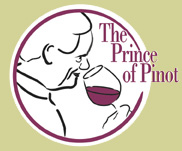Breast Cancer, Alcohol & Genetics: Latest Information
Alcohol consumption increases slightly the risk of breast cancer among women in the general population, but
its effect on women who carry a BRCA gene mutation is unclear. BRCA genes function as tumor suppressors
but mutations of these genes, which are hereditary, may be harmful. The mutations can be detected with
genetic screening. A study published in December 2010 in the medical journal Breast reported a case-control
study of 1925 matched pairs of predominantly pre-menopausal women who carry a BRCA1 or BRCA2 mutation.
The authors of the study concluded that alcohol consumption did not appear to increase breast cancer risk in
women carrying a BRCA gene mutation, and, compared to non drinkers, exclusive consumption of wine was
associated with a significant reduction in the risk of cancer among BRCA1 carriers.
The same researchers from the Universities of Montreal, Ottawa and Toronto, Canada, plan to publish another
study in an upcoming issue of the The Breast Journal. This study was recently summarized by Jacob Gaffney
on winespectator.com. The study found that women with the BRCA1 mutation showed a 62% lower risk of
breast cancer than the general population if they drank wine, while women with the BRCA2 mutation showed a
58% greater risk. The researchers attribute the difference to the polyphenol resveratrol found in wine.
Resveratrol can bind to estrogen receptors and assist in the regulation of activity of BRCA1 mutated genes, but
BRCA2 mutated genes appear to be unreceptive to resveratrol. This theory is still speculative and there may be
other substances in wine that are decreasing the risk in women with the BRCA1 mutation. The results may
also be explained by confounding.
Considerable research still must be done to clarify the risks of alcohol and breast cancer in women as the
studies are conflicting and inconsistent. It is generally agreed that there is a 6%-10% increase in risk for each
drink per day a woman consumes. 12.7% of women will be diagnosed with breast cancer some time in their
life. Assuming a 6% increased risk in light drinkers, the risk rises only slightly to 13.5%. The very small risk in
women seems trivial when one considers that heart disease causes ten times as many deaths as breast cancer
in women and heart disease deaths exceed breast cancer deaths in every decade of a woman’s life. Also, a
diagnosis of breast cancer carries more than a 90% cure rate. It is well established that small amounts of
alcohol and wine lower the risk of the more common causes of death among women such as heart disease,
stroke, hip fracture and dementia.
Curtis Ellison, M.D., a well known public health professor, has stated that for women who do not binge drink,
have adequate intake of folate, and are not on hormone-replacement therapy, the risk of breast cancer appears
to increase only for consumers of more than one and a half drinks per day.
Perhaps the greatest health benefit of wine is the gustatory pleasure and its powerful psychological influence.
As Julia Child noted, “The fact that people drink wine to relax and enjoy life is, in itself, enough a health benefit
for everyone.”



